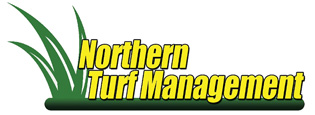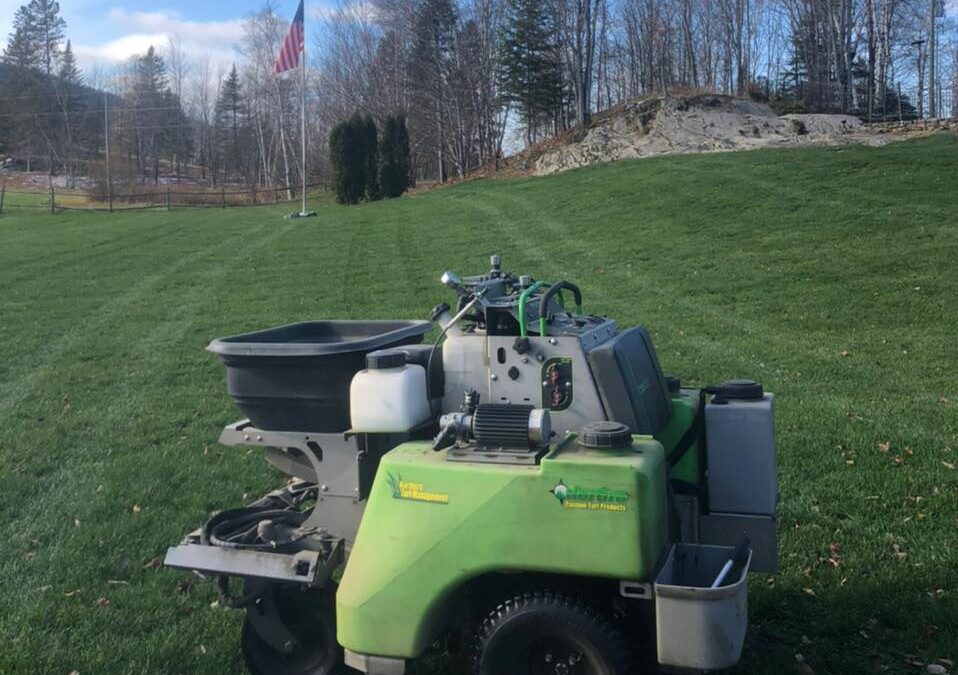Curious about the role of lawn care companies in the wintertime? A common misconception is that our work is accomplished after the growing season, and we count dust bunnies idly until springtime. However, this couldn’t be further from the truth! Effective lawn care is a year-round effort, so our lawn care team at Northern Turf Management is still hard at work from December to February. We assist homeowners with several needs, from practical consulting to winter care. So, learn about our responsibilities as a lawn care company in Maine over the winter months.
What Do We Do In The Winter?
We often get asked, “What do lawn care companies do in the winter season?” Our busiest time is spring to fall, but we’re also active in the snowy winter. As a Maine lawn care company, we don’t just manage turf treatment applications and pest control. We also guide our clients in making the best-informed lawn care decisions through consulting. The winter season is also an optimal time to maintain our lawn equipment for reliable usage in the coming year and ensure our customers’ lawns survive winter hazards like snow mold.
Our 2024 Winter Services And Responsibilities
Consult customers: When customers seek out professional lawn care advice, we’re here to help. Much of our responsibility in the wintertime is to prepare our customers for the coming year by providing personalized recommendations to reach their lawn goals.
Maintain equipment: Now that the growing season has ended, we use the winter months to clean, repair, and lubricate our equipment. Lawnmowers, leaf blowers, and string trimming are all essential tools we maintain when not used.
Snow mold prevention: Since snow mold is one of your lawn’s most significant winter threats, we apply preventative fungicides before snowfall to deter disease. We also continue lawn inspections and watch for signs of snow mold infection.
Seasonal Challenges In Maine Lawn Care
Fertilization, aeration, and other lawn maintenance steps from spring to fall are essential to your lawn’s survival in rough winter conditions. However, seasonal challenges emerge in the winter, challenging your lawn’s vitality and may cause winter kill. We actively fight against several conditions for our customers:
Snow accumulation: A light layer of snow can be protective and insulating, but a blanket of heavy snowfall can result in worse outcomes. Snow accumulation can crush the grass beneath, tightly compacting the roots and blades. When the snow melts and refreezes, your grass might also be suffocated by a layer of ice that can cause further damage to the foliage. However, year-round fertilizing and attentive care strengthen grassroots and enable them to withstand the damage of snow buildup.
Snow mold: Snow accumulation doesn’t stop at compaction. The weight of snow and the moisture beneath result in an environment optimal for snow mold growth. We apply a layer of fungicide before the snowfall to prevent snow mold by creating a barrier between the mold and delicate grass blades. If customers notice snow mold symptoms, we rapidly assess and diagnose the issue to start the necessary treatment as soon as possible.
Dehydration: With all the snowfall Maine receives each winter, dehydration might be the last thing on your mind! However, windy, cold, and arid winter conditions can cause turfgrass and evergreen dehydration and desiccation. As a result, we offer anti-desiccant spray applications for your trees, shrubs, and grass in late fall. These sprays create a protective coating and reduce moisture loss through the leaves.
Salt damage: Another cause of dehydration is from road salts. While they help melt ice off driveways and roads, the leftover salty water often enters nearby lawns. The salt disturbs the natural osmosis process in the grass and extracts the water out of the plant cells, leaving them dehydrated and weak. Our team can monitor your soil’s health and offer additional winterizing tips to prevent salt damage.
Expert Winter Lawn Maintenance Tips For Homeowners
Although the growing season is over, your lawn still needs careful observation and attention (after all, it’s only dormant – not dead!). Taking occasional winter walks around your lawn to check for signs of weakness or disease is a wise step to prevent lawn damage. As you walk and survey your yard, do your best to prevent excessive foot traction in one area and reduce the chances of compaction.
As you remove snow from your driveway and walkways, it’s also good practice to spread the snow across your lawn evenly rather than let it pile up in one location. Uneven snow cover can contribute to snow mold development and crushed grass blades, so distributing the snow can reduce how much physical stress your turf faces.
Frequently Asked Questions During The Winter
We might not be on your lawn as frequently as we are during the growing season, but don’t hesitate to reach out with questions. Lawn owners approach us with common winter lawn care questions, so we’ve compiled a few of the most common ones for you.
grey snow mold
Q: How should I prepare my lawn for winter?
A: Consistent lawn care is the best way to ensure a resilient winter lawn. Mowing your lawn short, applying a winterizer, and healthily watering your grass before the first snowfall will contribute to hardy grass.
Q: When should I stop watering my lawn?
A: Generally, you should stop watering your cool-season grass in the late fall before the first hard frost. It’s helpful to water deeply before the freeze to prevent dehydration throughout the winter.
Q: How can I protect my lawn from winter diseases?
A: Dethatching and aerating your lawn before winter improves air circulation and reduces the chances of mold growth from trapped moisture and organic matter. We also recommend applying a preventative fungicide before all snowstorms and reapplying between each snowfall.
Get Ahead Of New England Spring Green-Up With Northern Turf Management!
Ready to give your lawn the winter care it deserves? Contact us today to take advantage of lawn care in Cyr Plantation & Caribou, ME, that guarantees a lush and healthy yard come springtime. Call (207) 544-9420 to learn more about our winter-resistant lawn care practices today.

